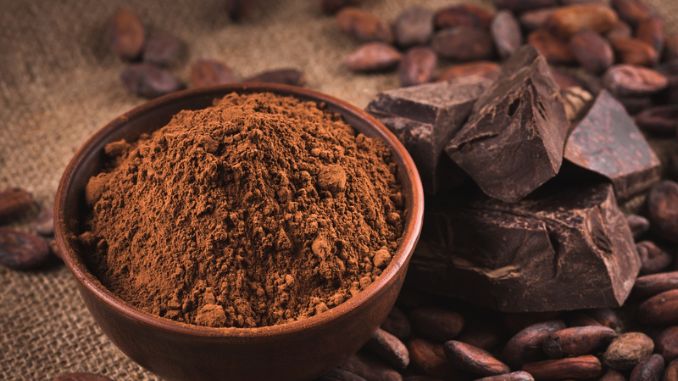There’s no denying that chocolate is one of the world’s most beloved treats. Recent research suggests that there are numerous health benefits to be gained from eating chocolate in moderation, making it not just a favorite snack to indulge in. People have viewed chocolate as an unhealthy guilty pleasure for years, but the truth is that it can be an incredibly nutritious snack when eaten in the right amounts. In this article, we’ll explore the various reasons why chocolate is actually good for your health. From aiding in weight management to reducing stress levels, it’s time to start embracing the many health benefits of chocolate.
The Sweet Truth
A bit of chocolate looks like a tasty treat that there is no need to consider a guilty pleasure anymore. It could be your healthy pleasure instead! That’s right: while it might seem too good to be true, there are multiple studies to back the fact that chocolate is good for your health.
This latest scientific study in Denmark showed that eating a small amount of chocolate daily may decrease the risk of atrial fibrillation or irregular heart rhythm. The researchers found that people who ate chocolate 1-3 times per month were about 10% less likely to be diagnosed with atrial fibrillation than those who ate chocolate less than once a month.
Who would have thought a candy bar could be a treat for your heart, not your soul? But the good news isn’t over yet!
Chocolate has a few other scientifically established health benefits:
The benefits of eating chocolate are numerous, ranging from a reduced risk of heart disease to a lower risk of skin aging. If you’re eating chocolate but aren’t sure why here are a few reasons why you should keep indulging.
- It’s packed with beneficial minerals. Iron, magnesium, copper, manganese, potassium, phosphorus, zinc, selenium — the list goes on. Quality dark chocolate contains the most nutrients and is also a powerful source of antioxidants.
- It’s good for the heart and prevents atherosclerosis. Don’t take it from us — take it from the Federation of American Societies for Experimental Biology and their research, which proves that dark chocolate helps restore flexibility to arteries while also preventing white blood cells from sticking to the walls of blood vessels; both these effects reduce the risk of atherosclerosis.
- It reduces the risk of stroke. According to this study held in Finland, chocolate consumption decreased the risk of suffering a stroke by 17% in the group of men they tested. This Swedish study also found that women who ate more than 45 grams (about 2 candy bars) of chocolate weekly had a 20% lower risk of stroke than women who ate less than 9 grams of chocolate per week.
- It helps regulate cholesterol levels. Cocoa significantly decreased “bad” cholesterol and increased “good” cholesterol levels in men with elevated cholesterol.
- Weight management. Eating a small amount of chocolate can help reduce cravings and help you manage your weight. The key to successful weight management is finding a balance between indulging your cravings. And remaining in control of your portion sizes.
- Reduced risk of diabetes. Eating chocolate can help reduce the risk of diabetes, and therefore insulin resistance.
- Reduced risk of blood pressure. Studies have found that eating chocolate can reduce blood pressure by up to 10%.
The list of health benefits of chocolate doesn’t even end there! This delicious treat was also proven to supercharge your memory and focus, help protect the skin against sun-induced damage, lower blood pressure, and eliminate stress.
How can chocolate help with weight management?
The flavanols in chocolate boost your metabolism, which results in a higher rate of fat burning. This can help you shed extra pounds and maintain a healthy weight.
- Theobromine – Scientists have found that theobromine, a chemical found in cocoa, can help boost metabolism.
- Caffeine – Drinking a cup of coffee can also help boost metabolism.
- Calorie reduction – The flavanols in chocolate can reduce the number of calories your body uses by up to 10%.
- Healthy fats – The fats found in chocolate can also help boost metabolism.
What is the role of antioxidants in chocolate?
Antioxidants are compounds that help protect your body from harmful free radicals. Free radicals can cause oxidative damage to cells by stealing electrons from your body’s cells, which can lead to accelerated aging and even certain types of cancer. Eating chocolate with antioxidants can reduce the risk of oxidative damage and lessen the impact of free radicals.
- Theobromine and caffeine – Antioxidants Theobromine and Caffeine, which can help reduce the risk of heart disease, stroke, and diabetes, are found in chocolate.
- Flavonols – Cocoa can lower your blood pressure and reduce your risk of heart disease due to the flavonols, a type of antioxidant, found in it.
- Polyphenols – Researchers have linked reduced rates of cancer and even weight loss to another type of antioxidant, polyphenols, found in cocoa.
How does chocolate reduce stress levels?
Chocolate contains theobromine, which is responsible for lowering stress levels. Theobromine is a mild mood enhancer that helps reduce stress and anxiety by stimulating serotonin production.
- De-stressing – Eating chocolate can help de-stress your body and mind, making it a great snack after a long day at the office.
- Improved mood – Theobromine can help lift your mood and reduce feelings of sadness and anxiety.
- Improved sleep – As well as reducing stress and anxiety, chocolate can also help with insomnia.
What are the heart health benefits of eating chocolate?
Chocolate is often associated with health benefits, but what about the heart? The cocoa in chocolate contains flavonoids that can help reduce the risk of heart disease.
- Reduced risk of stroke – A recent study found that consuming cocoa flavanols can reduce the risk of stroke in humans by 39%.
- Reduced risk of blood pressure – Eating flavonoid-rich foods like chocolate can significantly lower your blood pressure.
- Reduced risk of diabetes – The flavanols in chocolate can help reduce the risk of diabetes, which can lead to a lower risk of heart disease.
- Reduced risk of heart disease – A recent study found that regular chocolate consumption can reduce the risk of heart disease by up to 40%.
What are the cognitive benefits of eating chocolate?
Chocolate contains two compounds, theobromine, and flavanols, that provide cognitive benefits. Theobromine can help improve your mood, while flavanols can help improve your brain function by increasing blood flow to the brain.
- Improved memory – Several studies have found that eating chocolate can improve memory and cognitive function.
- Improved focus – Eating chocolate can also help improve focus and productivity, making it a great choice for students and office workers alike.
- Improved mood – As we’ve discussed, theobromine can also help improve mood and reduce feelings of anxiety and stress.
How does chocolate affect skin health?
The antioxidants in chocolate can slow down the aging process and thus help reduce wrinkles and prevent damage to your skin. Eating chocolate with a high cocoa content can help reduce fine lines and wrinkles, providing a quick fix for an appearance boost.
- Skin protection – The antioxidants in chocolate can help protect your skin from UV damage, which can lead to skin aging.
- Collagen production – The antioxidants in chocolate can help boost collagen production, which can help reduce fine lines and wrinkles.
- Skin hydration – The antioxidants in chocolate can also help hydrate your skin, leaving you with a healthy glow.
How does chocolate support bone health?
A growing body of research has found that the flavanols found in cocoa can help protect against bone loss. Cocoa flavanols have been linked to a reduced risk of osteoporosis, which is a common condition that can lead to weak and brittle bones as you age. – Bone strength – Eating chocolate can help support bone health, helping to prevent age-related bone diseases. – Reduced risk of fractures – Eating cocoa flavanols can reduce the risk of fractures, which can be particularly important for older generations.
What to keep in mind when eating chocolate
While you’re free to enjoy chocolate as often as you like, it’s important to keep a few things in mind. As with most foods, it’s important to eat chocolate in moderation. We do not recommend excessive chocolate consumption as it can lead to weight gain and tooth decay.
- Chocolate in large amounts can actually increase your blood pressure, which is something to be mindful of for individuals with high blood pressure.
- Chocolate can cause heartburn in some individuals. Avoid chocolate if you have heartburn or digestive issues.
- If you’re sensitive to caffeine, you should avoid chocolate since it contains caffeine.
- It’s important to also make sure that you’re eating the right type of chocolate. Cocoa-based products are a great source of flavanol antioxidants, but you should make sure to avoid sugar-loaded bars.
Ready to Make Chocolate a Part of Your Healthy Diet?
Do it smartly! While chocolate in reasonable amounts can be considered a healthy snack, moderation is the key. When you eat these delicious chocolate bars, all the calories come with them.
Chocolate is a delicious treat that is loved by many, but it’s also been controversial in the health and nutrition space. While many people believe that chocolate is unhealthy, new research suggests that it can actually have numerous health benefits. From weight management to heart health and even brain function, chocolate can be a delicious way to boost your health.
Besides, not all chocolate was created equal. The higher the cocoa content of the bar, the better it is for your health. Dark chocolate packs lots of beneficial nutrients. But its bittersweet and sweet versions also contain plenty of fat and sugar. Try to always opt for at least 50-80% cocoa content: potential health benefits of highly sweetened, processed chocolate are questionable.
The bottom line: if you’re a big chocolate lover who doesn’t want to compromise on health, go dark!
Have Your Chocolate Without Guilt!
If you like chocolate as much as we do and think everyone needs to know how healthy it is… Hit the share button below!

Rick Kaselj MS, is a leading kinesiologist and injury specialist as well as co-creator of the best-selling Unlock Your Hip Flexors program. Rick creates exercise programs that help people heal injuries and eliminate pain, so they can go back to living a full, active, healthy life.








